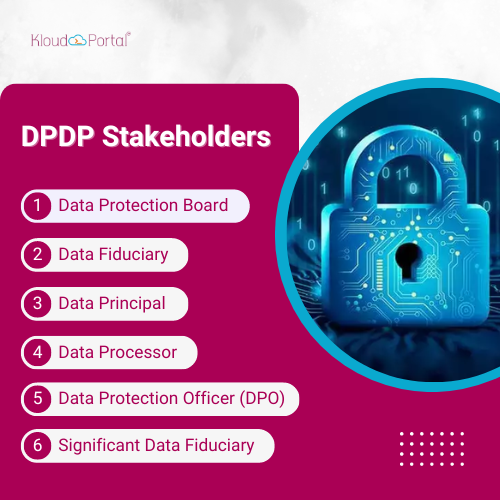
Why Is A Privacy Policy Page Important On A Website?
In today’s digital age, the collection and processing of personal data have become integral to online businesses and websites. However, with the rise of data protection laws, such as the General Data Protection Regulation in the European Union and many third-party services in different regions, it has become crucial for websites to have a well-defined privacy policy. This legal document ensures compliance with these laws and helps build trust. This article will explore why a privacy policy is important, the consequences of not having one, its purpose, and what your privacy policy should include.
The Significance Of A Website Privacy Policy
A website’s privacy policy is a critical legal contract that outlines how the site gathers, utilizes, secures, and manages users’ or visitors’ data. Its presence on your website is paramount for several compelling reasons:
- Compliance with Data Protection Laws: A primary purpose of the privacy policy is to ensure strict adherence to data privacy legislation and regulations, such as GDPR and CCPA. Violation of regulations can result in significant fines and legal actions.
- Building Trust with Website Visitors: A transparent and well-crafted privacy policy fosters trust. When users understand how their information collected is protected, they are likelier to share it, bolstering their online reputation.
- Informed Consent: The policy informs users about data acquisition practices, enabling them to make informed decisions. Many laws require active consent from users before information gathering.
- Meeting Legal Requirements: Beyond privacy regulations, it demonstrates a commitment to legal obligations, serving as a foundation for legal data retrieval, contract compliance, and app store requirements.
- Addressing State and International Laws: Privacy laws vary by region; your policy should adapt accordingly. For example, GDPR compliance is crucial for EU country users.
- Protection Against Legal Action: Legal actions may ensue without a privacy policy or non-compliance. A privacy notice acts as a binding agreement, protecting against potential disputes.
The Best Online reputation management Agencies in Hyderabad enhance and maintain the online image of businesses and individuals by catering to legal agreements, federal law, and other state laws.
Consequences Of Operating A Website Without Privacy Policies
Operating a website without a privacy law can lead to significant repercussions. It can legally violate regulations, inviting penalties and fines in their jurisdictions. Users may lose trust, causing reduced engagement and damage to their reputation. Data breaches become more likely due to inadequate security measures, leading to legal and financial consequences. You might miss out on valuable business opportunities that necessitate a privacy policy.
Regulatory scrutiny and potential legal actions can disrupt operations. A clear and comprehensive privacy policy aligning with data practices and legal requirements is crucial to mitigate these risks and showcase commitment to user privacy. India’s Best Enterprise SEO companies companies excel in crafting comprehensive strategies and leveraging their expertise to optimize the website’s growth.

The Purpose Of Website Privacy Policy
The privacy policies of most websites serve several critical functions and are primarily designed to provide transparency and clarity on the collection, utilization, storage, and protection of users’ private information. The objective is:
- Transparency: Privacy policies promote transparency by disclosing how an organization handles personal data. This transparency helps build trust between the organization and individuals.
- Legal Compliance: Privacy laws and regulations in various jurisdictions often require policies. Compliance with these laws is essential to avoid legal penalties. With this, websites demonstrate their commitment to upholding these legal requirements.
- Data Protection and Accountability: The policies outline the security measures and safeguards to protect personal data from breaches and unauthorized access. Having them in place demonstrates accountability for its data processing practices.
- Data Usage: The policy helps individuals understand why and how their data is processed. If an organization shares personal data with any third parties, the policy should disclose this and explain the circumstances under which sharing occurs.
- Retention Periods: It typically specifies how long personal data will be retained. This information is essential for individuals to understand how long their data will be stored.
- Updates and Changes: Organizations may update their data processing practices or policies. A privacy policy will inform individuals of these changes and how they will be notified.
Usually, an online business employs a data protection officer to oversee the collection of personal information through third-party apps such as Google Analytics and mobile apps, ensuring strict compliance. This commitment to customer trust lets users know their privacy is paramount when providing information through Google AdWords or other means. Websites offering India’s Best Enterprise SEO services also boast well-defined privacy policies.
Content Guidelines For Your Website’s Privacy Policy
Your company’s privacy policy should be a comprehensive and transparent document that addresses the specific data practices of your site. While the content may vary depending on your business and website, here are the key elements that should be included:
- Introduction: Start with an introductory section explaining the privacy policy’s purpose and scope. Let users know that by using your website, they are agreeing to the terms outlined in the policy.
- Data Collection: Collect personally identifiable information, such as names, email addresses, payment information, IP addresses, or any other relevant information. Explain how and why this data is collected.
- Data Use: Specify the purposes for using the data collected. It may include processing orders, personalizing user experiences, sending marketing communications, or improving site performance.
- Privacy regulations: Explain the security measures to protect user data from unauthorized access, breaches, or misuse. Assure users that you take their data privacy seriously.
- Third-Party Services: Disclose many third-party services or ad service integrations used on your website and provide links to their data privacy policies. Explain how these services collect personal data and process it.
- User Rights: Inform users of their rights, such as access to their data, request deletion or opt-out of certain data processor activities. Explain how they can exercise these rights.
- Cookie Policy: If your website uses cookies or similar tracking technologies, provide notice about their purpose, types, and how users can manage or disable them.
- Contact Information: Include contact information for users to contact with questions, concerns, or data-related requests. Designate a data privacy and protection officer if required by a law firm.
- Specific Regional Compliance: If your website operates in multiple regions, include sections addressing compliance with regional data protection laws, such as GDPR for European users or CCPA for California residents.
- Children’s Data: If your website is directed at or knowingly collecting data from children under the age of 13 (or a different age, depending on applicable laws), explain how you handle children’s data in compliance with the Children’s Online Privacy Protection Act (COPPA) or other laws.
Conclusion
A privacy policy is an indispensable component of any website, serving multiple essential purposes. It ensures regulatory compliance with data security legislation, builds trust with website visitors, and provides data collection and processing practices transparency. Failing to have a privacy policy or neglecting its contents can lead to legal consequences, loss of user trust, and missed business opportunities.

Rasmita Patro
About The Author…
Meet Rasmita Patro, a content writer, a former teacher, and a former HR with a passion for storytelling, creating compelling content that engages and informs readers. She has a Master’s in Economics and an MBA degree in Human Resources. Her expertise spans a variety of industries, including finance, healthcare, technology, and others. She has a particular inclination toward crafting blog posts, articles, and social media content that resonates with the target audience. She loves reading different genres of books, love to experiment with cooking, and listening to soothing music.



